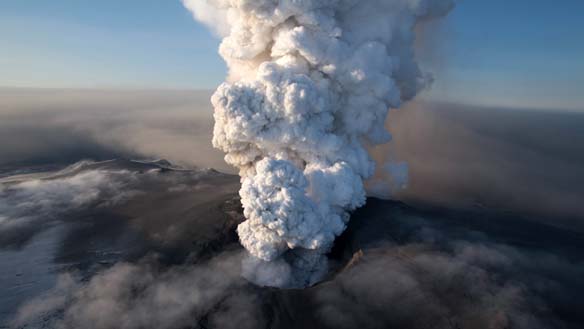ICAO and industry develop new tools to counter future volcanic ash events
- Like
- Digg
- Del
- Tumblr
- VKontakte
- Buffer
- Love This
- Odnoklassniki
- Meneame
- Blogger
- Amazon
- Yahoo Mail
- Gmail
- AOL
- Newsvine
- HackerNews
- Evernote
- MySpace
- Mail.ru
- Viadeo
- Line
- Comments
- Yummly
- SMS
- Viber
- Telegram
- Subscribe
- Skype
- Facebook Messenger
- Kakao
- LiveJournal
- Yammer
- Edgar
- Fintel
- Mix
- Instapaper
- Copy Link
Posted: 26 June 2012 | ICAO | No comments yet
IVATF has delivered a series of practical tools and recommendations to significantly mitigate the impact of future volcanic events…


The International Volcanic Ash Task Force (IVATF), a special multidisciplinary group established by the International Civil Aviation Organization (ICAO) in response to the Eyjafjallajökull eruption in April 2010, has delivered a series of practical tools and recommendations to significantly mitigate the impact of future volcanic events on international aviation operations.
The new measures were delivered at the IVATF’s final meeting held recently at ICAO Headquarters. They include a new publication of specialized ash-related flight operations guidance, a template for Air Traffic Management (ATM) Volcanic Ash Contingency Plans and recommendations regarding new technologies and system requirements pertinent to ground-based, airborne and satellite-based volcanic ash detection systems.
“Challenges such as Eyjafjallajökull represent important opportunities for the global aviation community to advance its collaborative scientific understanding and coordinated operational responses to volcanic eruptions, wherever and whenever in the world they occur,” stressed ICAO Secretary General, .
“Efforts to determine the appropriate balance between the safety and the regularity of aviation in the face of volcanic ash contamination must continue and ICAO is committed to see that they will,” Mr. Benjamin emphasized.
Iceland’s 2010 eruption led to the worst disruption to air transport operations since World War II. It clearly displayed the modern aviation system’s vulnerability to natural hazards and prompted the sector to establish the IVATF to complement the ongoing work of the existing International Airways Volcano Watch Operations Group.
ICAO Member States and international organizations nominated atmospheric science, airworthiness and ATM experts, amongst others, to take part in the IVATF’s research. Airline, airport and Air Navigation Service Provider (ANSP) global trade associations all actively contributed resources to the effort, in addition to air traffic controller and airframe/engine manufacturer groups.
Many of the experts will also be involved in the future work programmes that have been recommended by the IVATF. These include studies on volcanic ash concentration levels, volcano monitoring and information management as well as research on new methods to detect sulphur dioxide in the atmosphere.
“If a major volcanic eruption were to occur today, civil aviation would find itself in a much better position than in April 2010,” concluded IVATF Programme Coordinator and New Zealand Meteorological Authority representative, Peter Lechner. “Many challenges remain, however, and we will continue to address them within the International Airways Volcano Watch Operations Group, other ICAO expert groups, or through pertinent partnering organizations.”
Supporting information:
New or amended guidance material resulting from the IVATF 2010-2012 programme:
ICAO Doc 9974: Flight Safety and Volcanic Ash – Risk Management of Flight Operations with Known or Forecast Ash Contamination.
ICAO Doc 9766: Handbook of the International Airways Volcano Watch – Operational Procedures and Contact List.
ICAO Doc 9691: Manual on Volcanic Ash, Radioactive Material and Toxic Chemical Clouds.













